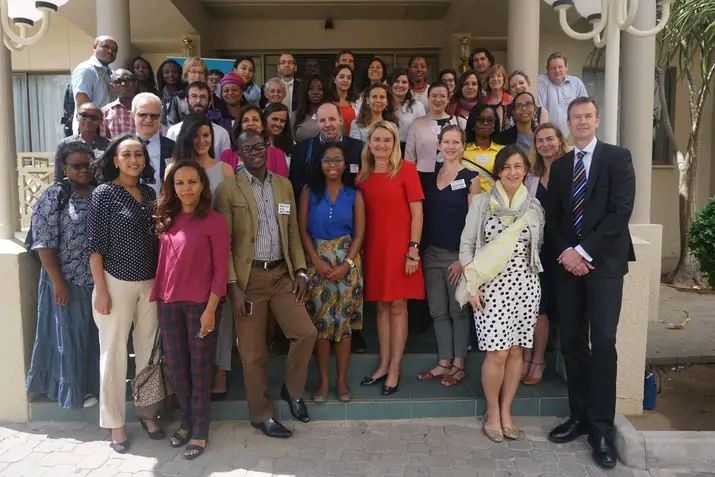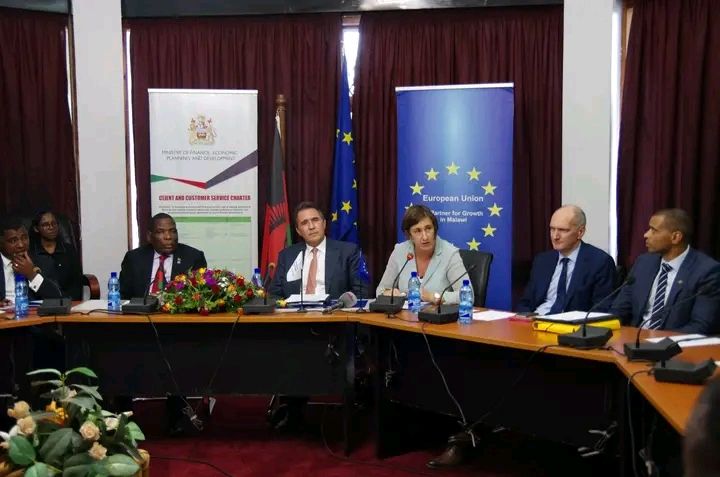By Twink Jones Gadama
In a bid to retain production capacity and counter the attractive foreign subsidies for manufacturers, the European Union (EU) has unveiled a substantial €4bn (£3.4bn) state aid investment plan.
The funding will be directed towards the establishment of new factories dedicated to manufacturing electric car batteries, heat pumps, and solar panels. This move by the EU aims to expedite the production and adoption of green technologies, while simultaneously addressing the issue of inexpensive Chinese imports.
One of the primary recipients of state aid will be Northvolt, a Swedish battery producer, which is set to receive an impressive €902m for the construction of a new factory located in Heide, Germany.

Additionally, France is set to witness a significant boost in state aid, with a collective €2.5bn being allocated to various clean tech factories across the country.
The European Union’s investment in green technology manufacturing plants underlines its commitment to supporting the transition to a low-carbon economy. By fostering domestic production of electric batteries, heat pumps, and solar panels, the EU is not only aiming to reduce its reliance on imports but also to promote sustainability and create new employment opportunities.
The establishment of the new battery production facility by Northvolt in Heide, Germany, is expected to significantly enhance Europe’s capacity for electric vehicle (EV) batteries.
This strategic move comes as the demand for EVs is steadily increasing, driven by the need to reduce carbon emissions and combat climate change. With state aid from the EU, Northvolt is well-positioned to establish a state-of-the-art manufacturing plant that will contribute to Europe’s goal of becoming a global leader in green technology.
France, another key player in the European Union, is actively participating in the transition to a greener economy.
The €2.5bn in state aid earmarked for clean tech factories across the country will further strengthen France’s position in the green technology sector and boost its manufacturing capabilities.
This investment will facilitate the production of heat pumps, solar panels, and other clean technologies, propelling France towards a more sustainable future.
The EU’s decision to provide significant state aid to these sectors is prompted by the concern that domestic manufacturers could be enticed to relocate their production facilities overseas, where they may take advantage of more substantial financial incentives.
By backing domestic manufacturers, the EU hopes to prevent the outflow of production capacity and to safeguard its green technology industry, ensuring that it remains at the forefront of global innovation.
Furthermore, this investment by the EU serves as a crucial step in countering the influx of cheap Chinese imports. By supporting the growth and competitiveness of European manufacturing, the state aid aims to reduce dependence on imports and promote the purchase of locally produced, environmentally friendly products.
This strategic move not only strengthens Europe’s green technology sector but also bolsters its economic resilience while simultaneously reducing its carbon footprint.
The allocation of €4bn in state aid signifies the EU’s ambition to build a robust ecosystem for sustainable manufacturing within its borders.
By nurturing the growth of domestic battery and green tech factories, the EU is paving the way for a sustainable future that reduces greenhouse gas emissions and contributes to the achievement of its climate targets.
Ultimately, the EU’s investment in battery and green tech factories aims to drive innovation, economic growth, and job creation in the green technology sector.
By supporting the expansion of clean manufacturing, the EU is demonstrating its commitment to fostering a sustainable and competitive industrial base.
The state aid provided will not only incentivize manufacturers to choose Europe as their manufacturing base but also encourage the development of cutting-edge technologies that will shape the global future of clean energy.
In conclusion, the European Union’s announcement of €4bn state aid investments in battery and green tech factories represents a significant milestone towards achieving a greener and more sustainable future.
Through these financial incentives, the EU aims to retain domestic production capacity, combat cheap Chinese imports, and accelerate the adoption of green technologies.
By supporting the growth of the battery and green tech sectors, the EU is positioning itself as a global leader in clean energy, fostering economic growth, and contributing to the preservation of our environment.





